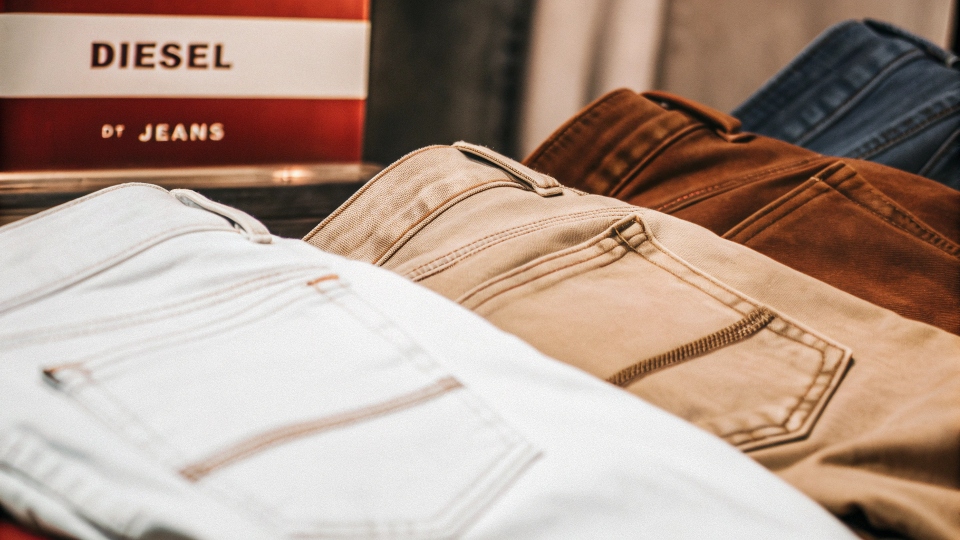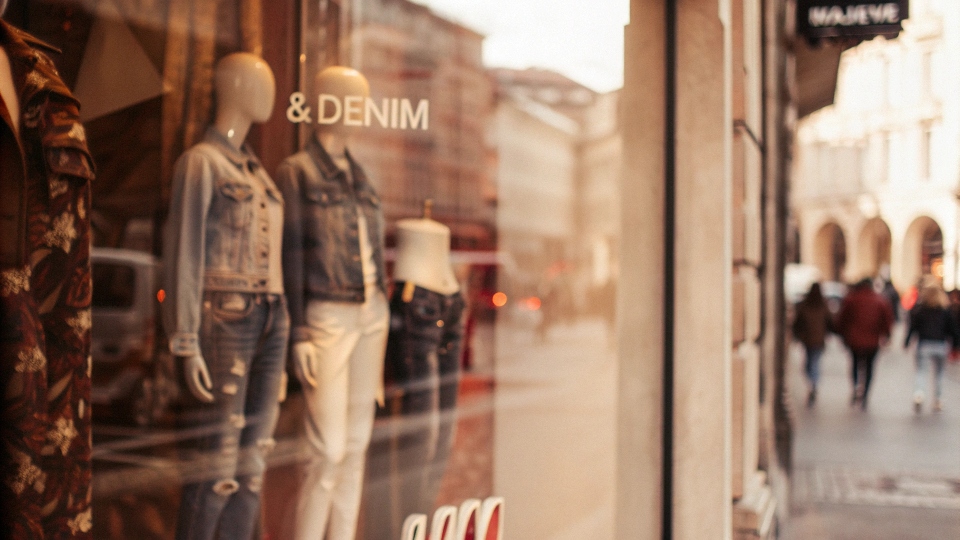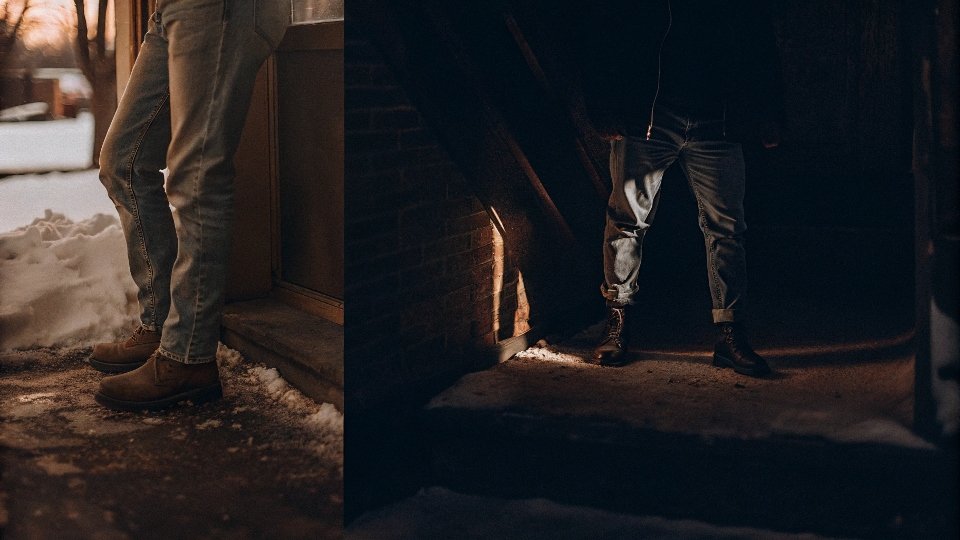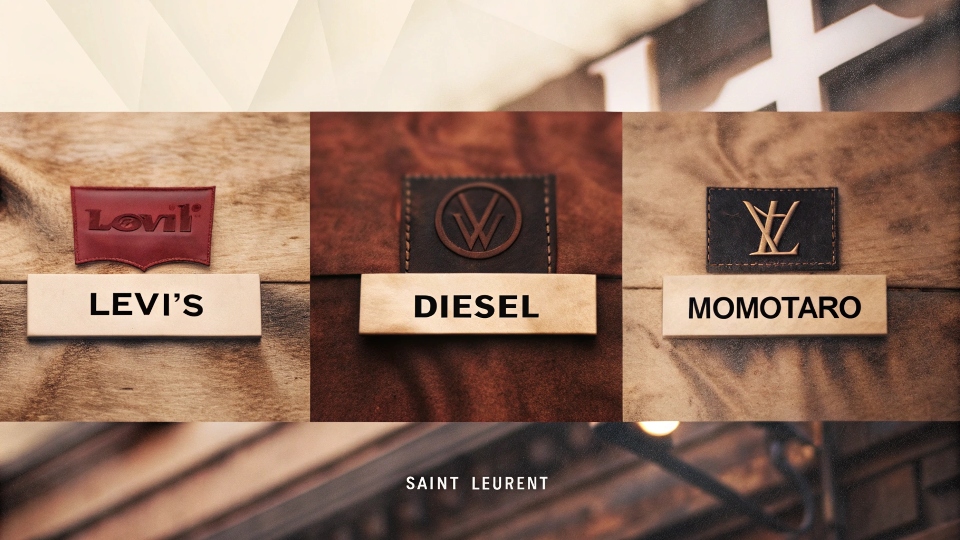You've heard people talk about "D Jeans1," but it's hard to find a clear answer about who they are. This confusion makes it difficult to understand their quality and story.
"D Jeans" is the common nickname for Diesel, the iconic Italian fashion brand. Founded by Renzo Rosso2 in 1978, Diesel3 is world-famous for its high-quality, innovative denim that has been setting trends for decades.
For over 20 years, I've been completely immersed in the world of denim manufacturing. My factory, DiZNEW, has produced jeans for countless brands, from small startups to established names.
I often chat with designers like Dean, who has his finger on the pulse of the industry. Questions about brand identity4 come up all the time. A name like "D Jeans" is a perfect example of how street slang and brand history can sometimes get mixed up. But understanding a brand’s origin is the first step to understanding its product.
Where are D jeans from?
You see a brand's logo, but you don't know the story or country behind it. This makes it hard to judge the brand's quality, style, and what it truly stands for.
D Jeans, or Diesel, is an Italian brand. It was founded in Breganze, Italy, in 1978. This Italian heritage is core to its identity, mixing a rebellious attitude with high-fashion design, which sets it apart from traditional American workwear denim.
A brand’s origin tells you a lot. When I consult with designers, the "country DNA" is a big part of our conversation. American denim heritage5 is all about durability and workwear.
Think of the classic, rugged Levi's 501. Japanese denim, on the other hand, is about perfectionism, raw selvedge fabrics, and painstaking craft. Diesel came from a different world: Italian fashion.
Renzo Rosso didn't want to make another work pant. He wanted to make denim a luxury fashion item. He pioneered creative, complex washes and distressing when everyone else was focused on basic raw denim.
In my factory, we know that an Italian-inspired design means we need to focus on sophisticated washing techniques, a tailored fit, and unique finishes. It is a different kind of art.
| Denim Origin | Core Philosophy | Key Characteristics | Iconic Brand Example |
|---|---|---|---|
| America | Workwear & Durability | Rugged, straight fits, heavy-duty | Levi's |
| Japan | Craft & Perfection | Selvedge, raw denim, vintage reproduction | Momotaro |
| Italy | Fashion & Innovation | Creative washes, slim fits, high style | Diesel |
Is &Denim an H&M brand?
You're shopping and see a tag that says "&Denim." You assume it's a standalone company, but you can't find its story or website online, which feels strange and a little untrustworthy.
Yes, &Denim is the private-label denim line for H&M (Hennes & Mauritz), the global fast-fashion retailer. It is not an independent brand but rather H&M's way of categorizing its wide range of affordable, trend-focused denim products.
Private labels like &Denim are a huge part of the fashion industry. They allow a big retailer like H&M to have total control over the product, from design to the price tag.
The goal of &Denim is to deliver the latest runway trends at a very low price, very quickly. This business model is the complete opposite of a premium brand like Diesel.
For my factory, the production process for these two types of brands is night and day. A fast-fashion order for something like &Denim is about massive volume, simplicity, and extreme cost efficiency. We focus on speed.
For a premium designer brand, the focus is on quality and detail. We might spend days developing a single unique wash for a few hundred pairs of jeans. One is about quantity, the other is about quality.
| Feature | &Denim (H&M) | Diesel |
|---|---|---|
| Purpose | Fast fashion, trend-driven | Premium fashion, brand statement |
| Price Point | Low ($20 - $60) | High ($150 - $400+) |
| Quality | Basic materials, simple washes | High-quality fabrics, complex washes |
| Strategy | Sell high volume to the masses | Sell a unique style to a loyal base |
Are D jeans suitable for all seasons?
You have a favorite pair of jeans, but they feel too heavy and hot in the summer or not warm enough for the cold of winter. This makes you question if one pair is really enough.
Yes, a brand like Diesel offers jeans suitable for all seasons. They achieve this by using a variety of fabric weights and blends, from lightweight denim for summer to heavier, 100% cotton styles for colder weather.
The secret to all-season wear is the fabric itself. When we talk about denim in the factory, we talk about its weight, measured in ounces per square yard. This one factor is key to comfort.
Lighter-weight denim, typically under 12 ounces, is more breathable and perfect for a hot summer day. Most standard jeans you buy are a mid-weight, around 12 to 16 ounces, making them versatile for spring and fall.
Anything over 16 ounces is heavyweight denim, which is thick, warm, and ideal for winter. Brands like Diesel also use different fiber blends. They might mix cotton with Tencel or linen to create a lighter, softer feel for their summer collections.
When I work with a designer on a new collection, our first discussion is about seasonality. The delivery date—Spring/Summer or Fall/Winter—tells me exactly which fabric books to pull out.
| Denim Weight | Ounces/Sq. Yard | Best Season(s) | Feel and Characteristics |
|---|---|---|---|
| Lightweight | Under 12 oz | Summer | Soft, breathable, very comfortable, drapes well. |
| Mid-weight | 12-16 oz | All-Season / 3-Season | The standard for most jeans. Durable yet flexible. |
| Heavyweight | Over 16 oz | Fall / Winter | Stiff at first, very durable, warm, blocks wind. |
Which is the top brand in jeans?
You want to invest in the "best" pair of jeans, but every expert seems to have a different opinion. The endless choices and conflicting reviews make it almost impossible to decide.
There is no single "top brand," because "top" means different things to different people. For timeless heritage, Levi's is the clear leader. For pure luxury, it's fashion houses like Saint Laurent. For raw denim craft, it's Japanese brands.
This is the question I love because there is no right answer. "Best" depends entirely on your personal priorities.
It is better to think in categories. If you want the original, iconic jean that started it all, you buy a Levi's 5016. That is the blueprint for everything that followed.
If you see denim as an object of meticulous craftsmanship, then you look to Japanese brands like Studio D'Artisan or Momotaro, who use vintage looms and natural dyes. But if you see jeans as a bold fashion statement, then Diesel has always been a top contender, known for pushing boundaries with its radical washes and advertising.
My role as a manufacturer is to understand which "top" category a client is aiming for. Then I can apply the right techniques, whether it's creating a perfect vintage fade or developing an experimental laser pattern, to help them compete.
| Category | What It Means | Top Brand Examples |
|---|---|---|
| Heritage & Iconic | The original, timeless classic | Levi's, Lee, Wrangler |
| Luxury Fashion | A high-fashion status symbol | Saint Laurent, Gucci |
| Pure Craftsmanship | For the denim purist; selvedge | Momotaro, Iron Heart |
| Wash & Innovation | Trend-setting, creative, and modern | Diesel, G-Star RAW |
Conclusion
"D Jeans" simply means Diesel, the Italian innovator. But the best brand is personal. Understanding a brand's origin, market, and materials is the real key to finding your perfect pair.
-
Explore the origins and evolution of D Jeans, also known as Diesel, to understand its impact on fashion. ↩
-
Learn about Renzo Rosso's vision and how he transformed Diesel into a global fashion icon. ↩
-
Discover what sets Diesel apart in the denim industry, from innovative designs to quality craftsmanship. ↩
-
Understand the significance of brand identity in fashion and how it affects consumer perception. ↩
-
Learn about the roots of American denim and how it contrasts with other denim traditions. ↩
-
Explore the legacy of Levi's 501 and its role in shaping the denim industry. ↩








